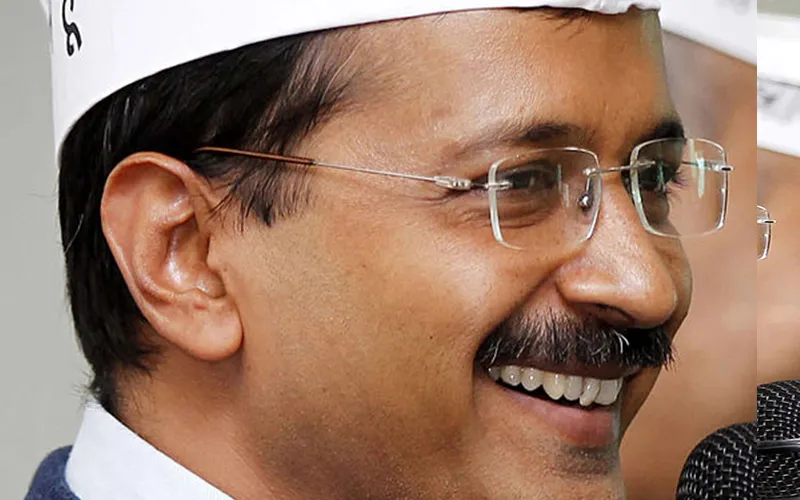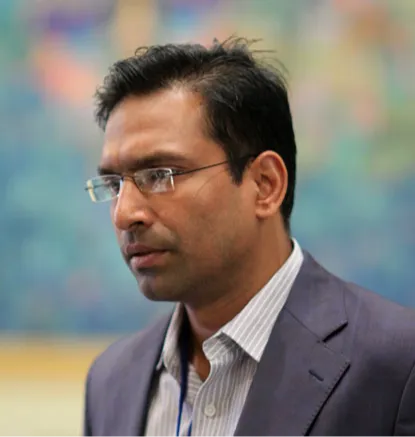-
CENTRES
Progammes & Centres
Location
Campaign trends in Delhi elections indicate that parties are playing around the issues having popular appeal rather than the hard core issues of governance, statehood or even air pollution. In varying degrees, populist ideas such as free houses, free water and free electricity remain the core poll promises for all political parties.

Delhi has been in the limbo for the past 13 months with different governments being in-charge -- an AAP government which never got out of dharna-mode, an outgoing UPA-2 caught up in scams and scandals, and the BJP government tasked with reviving economic growth in the country. This situation is unfamiliar to Delhi as it, prior to 2013 elections, had a stable government for 15 years, under Congress Chief Minister Sheila Dixit. However, since then three governments in 13 months meant that only limited attention has been paid to the issues plaguing the national capital. And in some ways, this has made the ongoing election campaign interesting.
Key issues
One of the main issues of the 2013 election was corruption. Arvind Kejriwal had promised to enact Jan Lokpal (Ombudsman) within 15 days of coming to power and bring all public servants come under its purview. This time round, he has not set any deadline for passing the Bill, although it is still the first point in their 70-point action plan. To counter AAP's anti-corruption crusade, the BJP has declared Kiran Bedi as their chief ministerial candidate as it would put the party in serious contention on the issue of corruption and clean governance. It believes her stature as a tough, honest cop during her IPS days, along with her stint in the Anna Hazare led India Against Corruption movement, will put her and the party in good stead with the voters.
Direct democracy (through decentralisation and participatory governance) that the AAP used last time with great flourish has found top place this time too. It promises Swarajya through mohalla sabhas (to ensure citizen participation and engagement in the decision making progress). Other parties have also jumped in to the fray with their versions of direct democracy. However, there is much to be sceptical about. First is the structure of institutions. However, none of the parties provide clear cut answer on modalities, scale and operational aspects of such entities. Who will the mohalla sabhas comprise of? Who will chair their meetings? Second is the question of accountability. Who do the people heading such institutions report to? How can it be ensured that they can descend into mob-rule? Third, is there even a need for creating such new institutions? Wouldn't be it wiser to strengthen already existing empowering tools such as much talked about Bhagidari, and recently enacted service guarantee act?
Another issue that has taken considerable traction in the ongoing election campaign is water and issues surrounding it. To do a quick recheck on water availability and state of water supply, 81.30 percent of Delhi households receive water supply through a piped source, according to the economic survey of Delhi in 2012-13. This means out of an estimated 33.41 lakh households in Delhi (as per the 2011 census), 27.16 lakh have access to piped water supply system. While these numbers seem encouraging, the problem is the supply of water is erratic and the water supplied is not always safe to drink. This fits in well with the political strategy of AAP, and that of the Congress, of providing water subsidies. The BJP has decided to take a more fiscally prudent approach by promising improvements in distribution infrastructure to ensure smooth and uninterrupted supply. The electoral outcome would tell whether such fiscally prudent promise would go well with average voters.
For the right reason, electricity issue (tariff and access) has taken the centre stage of campaign. During the run-up to the 2013 election too, electricity prices were a major policy plank for the AAP and the BJP. The AAP repeatedly claimed that the then Sheila Dixit government was responsible for the high prices as it was done in collusion with Discom (distribution companies) operators. Their solution was, and still is, to audit the accounts of the Discoms), and reduce prices by 50%. There is an implied assumption that the Discoms have indulged in malpractices which have caused a tariff hike of at least 50%. BJP, which too had promised 30 percent reduction in tariff, has now outlined a new strategy -- increasing competition among service providers and providing consumers the right to choose their utility provider. The Congress has taken a cue from both the BJP and the AAP, promising increased competition and cheaper electricity by "reigning in the private companies".
Law and order issue also remains one of the top agendas in the campaigns. The law and order situation, particularly with regard to violence against women, has reached an alarming state. The brutal rape and murder of Nirbhaya in 2012, and more recently the rape of a woman travelling in the Uber cab, have left the people in Delhi shaken and angry. Last year saw the situation worsen with a 18.3% rise in crime against women and 31.6% rise in cases of rape (according to Delhi police figures). To combat this malice, the political parties have come out with innovative ideas. The AAP claims it will form a Citizens' Security Force with a branch in each ward, to provide security to anyone in distress, but with a special focus on women, children, and senior citizens. While this may sound good, there is fear that such initiative may take ugly turn (will mete out vigilante justice). Kiran Bedi of the BJP has declared a 25-point blueprint for women's safety. A comprehensive document based on "6Ps" -- People, Police, Prosecution, Politicians, Press and Prison -- the former cop has detailed out preventive measures, corrective actions, and promised regular reviews of security measures. The Congress, which was at the receiving end of public protest during the Nirbahya incident, has vowed to ensure better policing and setting up of CCTV cameras, special training of police force with respect to women, and gender training of the entire Government work force. It is important to note that none of the political parties have yet analysed the issue of liability of radio-cabs. While these services might be fairly recent, their popularity is soaring and political foresight is needed to ensure safety of citizens and accountability of service providers. Any political party that takes the rein of Delhi and looks to implement law and order reforms faces the herculean task of bringing the Delhi Police under its jurisdiction.
The issue of full Statehood to Delhi is also becoming an interesting agenda. On numerous occasions, the state government is left handicapped in implementing reforms as municipal corporations and multitudes of urban bodies (over 80 local agencies, authorities and boards) do not come under its ambit. What makes the situation worse is that these civic bodies often have overlapping projects, and at times competing interests, which leads to severe governance crises. To resolve this issue, the Congress and the AAP, in their manifestos, have categorically backed the idea for full statehood, though neither of them has laid out a roadmap how this could be achieved. The BJP, which was on the forefront of the campaign for statehood during the Congress rule (even in 2013 manifesto, it was for full statehood), has now taken a u-turn and wants broad based deliberation on this "sensitive" issue.
Urban poor
Another issue, like in 2013, is urban poor. Each party is promising moon on issues involving the poorest or slum dwellers. According to Delhi Urban Shelter Improvement Board, there are 643 slums in Delhi, housing four lakh households and about 20 lakh people. The numbers of the homeless people are even more worrying. According to the 2011 census, Delhi's homeless population stood at 46,724. In the same year, the Supreme Court Commissioner's Office (SCCO), DUSIB, Mother NGO (MNGO), Homeless Resource Centre (HRCs) (including the Indo-Global Social Service Society) undertook an independent estimation of the homeless population in Delhi. According to this estimate, the figure reached 2,46,800. These figures are a reflection of the extremely grim situation of the Delhi housing sector and the urban poor. The AAP have claimed that over 200 acres of land is currently lying vacant with the Delhi Urban Shelter Improvement Board, and this will be used for building affordable homes. The BJP have gone with the slogan 'Jahan Jhuggi Wahan Makan' (wherever there is a jhuggi (slum), there will be a house). This again does not seem feasible because it overlooks the space constraints. The Congress too has provided no concrete solution and have simply claimed that ownership rights of land will be transferred free of cost to the people of slum clusters in resettlement colonies.
Issues overlooked
While several key issues have been raised by major political players, there are equally important issues that have not created much interest among the candidates. A serious concern which has been overlooked by almost all is the quality of air in Delhi. This issue was vividly captured by the media during the recent visit of the American President. A study conducted by the WHO in 2014 certified Delhi as the most polluted city in the world. The study went on to report that the national capital has the highest concentration of PM2.5 -- particulate matters less than 2.5 microns. This form of air pollution is considered very serious. It can cause serious health concerns. What is more worrying is the lack of political discourse on this issue. No political party has outlined a policy whereby emissions, particularly from the ever increasing number of vehicles, will be reduced.
A number of other problems too plague the city. Take for instance the traffic chaos that citizens find themselves everyday. Lack of public transport (despite the metro transport), poor road planning, an increase in number of vehicles, are all contributing factors. Chaos regarding nursery admissions has now become a yearly phenomenon with ever changing rules, regulations and guidelines. This has become a major worry for the parents and children. Yet, none of the parties in the fray has any clear answer. Similarly, rapid migration and problems associated with it has not received adequate attention from parties and candidates. There are only passing references to this problem that is critical to Delhi. Issues of critical importance such as cleanness and sanitation remain on the margins of the agenda of political parties.
Overall, the campaign trends indicate that parties are playing around the issues having popular appeal rather than the hard questions of governance, statehood or even air pollution. In varying degrees, populist ideas such as free houses, free water and free electricity remain the core poll promises for all political parties. In short, the election is about "competitive populism" than the big ticket reforms that new entities like AAP had promised last time around.
(The writers are with Observer Research Foundation, Delhi)
The views expressed above belong to the author(s). ORF research and analyses now available on Telegram! Click here to access our curated content — blogs, longforms and interviews.

Niranjan Sahoo, PhD, is a Senior Fellow with ORF’s Governance and Politics Initiative. With years of expertise in governance and public policy, he now anchors ...
Read More +